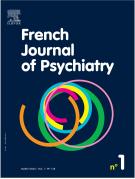Self-concept clarity and autobiographical memory functions in adults with Autism Spectrum Disorders without Intellectual Deficiency - 29/05/20
 , M.A. Goltzene 1, 2, E. Bizet 2, 4, M. Schoenberger 6, F. Berna 1, 2, 3, 5, J.M. Danion 1, 2, 3
, M.A. Goltzene 1, 2, E. Bizet 2, 4, M. Schoenberger 6, F. Berna 1, 2, 3, 5, J.M. Danion 1, 2, 3Résumé |
Background |
Various aspects of self-disorders have been reported in Autism Spectrum Disorder (ASD). If the contents of self have been studied (i.e. knowledge or beliefs about the self such as personality traits or values), much less is known about structural characteristics of the self-concept in this population. The latter refers to how self-knowledge components are organized and can be experienced by individuals in the form of a clarity of self-concept. It is intimately related to the activity of remembering one's past, that is to autobiographical memory. Therefore, we aimed at exploring self-concept clarity and its association to autistic symptoms and autobiographical memory functions in adults with ASD.
Method |
The self-concept clarity and autobiographical memory (AM) functions of 42 well-documented adults with ASD without ID (27 men) were compared to 42 controls participants using Bayesian analyses.
Results |
Our results showed both a lower clarity of self-concept and a lower social function of autobiographical memory in the ASD group compared to controls. The clarity of self-concept was also negatively correlated with the self-function of autobiographical memory in both groups, but contrary to our predictions, no relevant correlation was observed between clarity of self-concept and autistic symptoms in the ASD group.
Limitations |
Both self-concept clarity and autobiographical memory functions were assessed using self-administered questionnaires. IQ of ASD individuals was higher than that of controls despite matching on education level.
Conclusion |
Our study points a lower self-concept clarity together with a lower social function of autobiographical memory in adults with ASD without ID. It provides new evidence for an alteration of structural aspects of the self that goes beyond those of previous studies that were more restricted to self-knowledge. However, further researches are needed to better understand the link between self-disorders in ASD, autistic symptoms and other aspects of autobiographical memory.
Le texte complet de cet article est disponible en PDF.Keywords : Autism spectrum disorder, Self, Autobiographical memory, Self-clarity
Plan
Vol 1 - N° S2
P. S110 - décembre 2019 Retour au numéroBienvenue sur EM-consulte, la référence des professionnels de santé.
L’accès au texte intégral de cet article nécessite un abonnement.
Déjà abonné à cette revue ?

